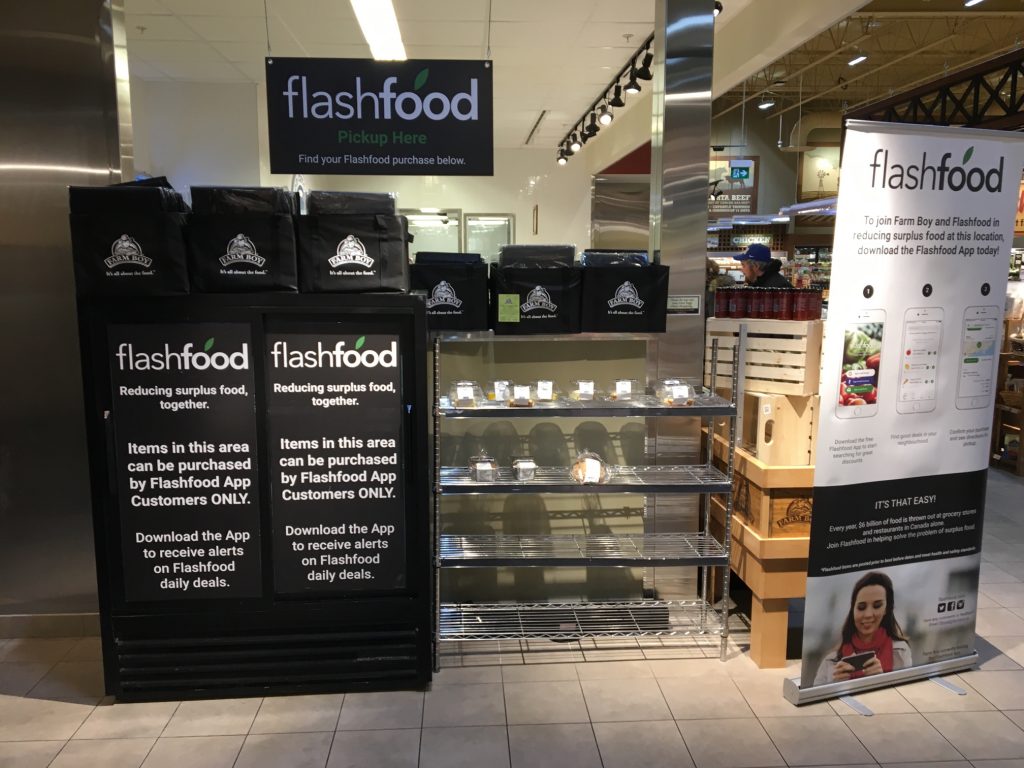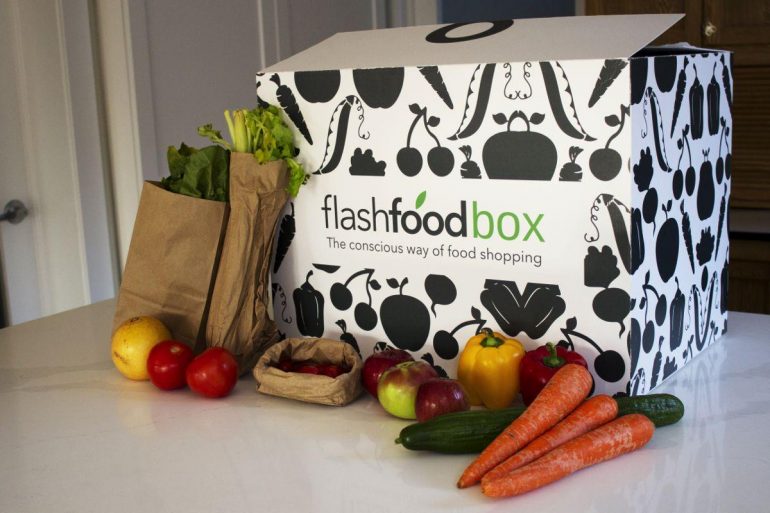Flashfood today announced a partnership with Loblaw Company, making its program available in the grocery chain’s Quebec divisions, Provigo and Maxi.
“This is almost an epidemic, this problem of food waste.” – Flashfood CEO.
The Toronto-based mobile marketplace for surplus food, first started working with two Loblaw companies, Superstore and No Frills, in August running pilot programs in three London, Ontario stores. That pilot was then extended to one store in Oakville.
Josh Domingues, the founder and CEO of Flashfood, told BetaKit those pilots went so well that Loblaw and Flashfood decided to extend their partnership, opening Flashfood programs at Loblaw Company stores across Quebec. (Flashfood began offering its services in Quebec stores earlier this month.) The program is currently available in nine Maxi stores, with plans to expand over the next couple months. The program will be available in 113 Maxi stores and 25 Provigo stores by the end of April.
Flashfood is still operating in the London stores, and earlier this month also began a partnership with Hy-Vee, a chain of more than 245 supermarkets throughout the midwestern US. The company is currently offering its program in three grocery stores in Madison, Wisconsin.
Domingues said Loblaw and Flashfood are likely planning to expand their partnership but the immediate focus is to expand throughout Quebec. This partnership with Loblaw marks the company’s first major rollout of its program. Flashfood has previously run pilot programs with other grocery chains, but nothing seemed to stick. It launched its first pilot in January 2017 with Farmboy and ran an eight to nine-month pilot with Longos in Toronto.
Flashfood seems to have found its niche with larger chains. “The reality with our business is that for grocery stories that have 20 or 30 locations, food waste doesn’t seem to be as big of a financial impact for them,” Domingues said. “When you get into the magnitude of chains that have hundreds or thousands of locations, it’s a much bigger issue and we can have a bigger impact with larger partners.”
This partnership with Loblaw marks Flasfood’s first major rollout of its program.
Flashfood’s goal is to reduce food waste. Its app provides a platform for grocers to sell surplus food directly to customers, at discounted prices. The platform allows mobile users to browse through available deals and also sends a notification whenever grocery stores and restaurants sell surplus food at a discount. Shoppers then go to participating stores, which have ‘Flashfood zones’ where they can pick up purchases.
“This is almost an epidemic, this problem [of food waste],” Domingues said. “When consumers go shopping we’re always looking for what has the longest shelf life, this means older stuff gets pushed to the front and people don’t buy it.” This combined, with the massive size of grocery stores, makes food waste almost unavoidable. Domingues noted, donating food or simply throwing away food can be a major logistical challenge and cost grocery stores to essentially throw away money. He stated that the advantage of offering programs like Flashfood is not only reducing waste, but saving grocery stores money.
The company said, since its inception, it has seen 80,000 app downloads. To date, Flashfood stated it has sold more than 75 percent of the products made available through its platform, at the same time, saving customers an average of 50 percent on grocery items.

Along with today’s partnership announcement, Flashfood also announced it is has secured funding, however, it does not want to disclose the amount.
The venture round, was led by US-based VC firm General Catalyst with participation from Rob Gierkink, co-founder of Air Miles Canada, James McCann, former CEO of supermarket chain Ahold USA, and Alex Moorhead, co-founder of Toronto-based Tandem Expansion Fund. All three have joined Flashfood’s advisory board. The startup also noted, “follow-on” investments for the round came from Techstars Ventures and Matchstick Ventures.
Flashfood previously closed a $1.5 million seed round in July 2017, raised by undisclosed private investors. That same month it also received $140,000 after winning the top prize at Startupfest.
According to Domingues, this was not a massive round, and not the company’s Series A. He also noted that he did not consider the round to be a strategic investment, despite the fact that it brought in McCann, a former CEO of a large US supermarket chain.
Domingues said Flashfood is choosing not to disclose its current funding because he doesn’t “want the focus of what we’re building to be on the amount of money we’ve brought in.” He noted that he doesn’t want the funding “to be the thing [Flashfood] celebrates and feels like we’ve made it because we’ve got to this point where we have ‘X’ amount of dollars in the bank.” While he admitted the round was not massive, he called it a “good round of funding” to help the company run and grow over the next few years.
RELATED: Flashfood wants to help grocery stores make money while helping the planet
“For us, it’s about the mission we are on and about reducing food waste,” Domingues stated. “We are in a really good position as a business that we have optionality now, and from a commercial perspective things are looking very positive.”
With this undisclosed funding, Flashfood has already ramped up its team by 200 percent. Between December and January, the company went from 7 to 21 employees, based on the funding as well as its success with Loblaw. Flashfood also moved into a new office in Liberty Village in Toronto and its team is currently made up of 21 employees in Canada and seven in Belarus.
Domingues said Flashfood is also currently going through a debt round that will likely close within the next month or so. The company’s program is currently available across North American with partnerships including Loblaw, Target, and Hy-Vee.


